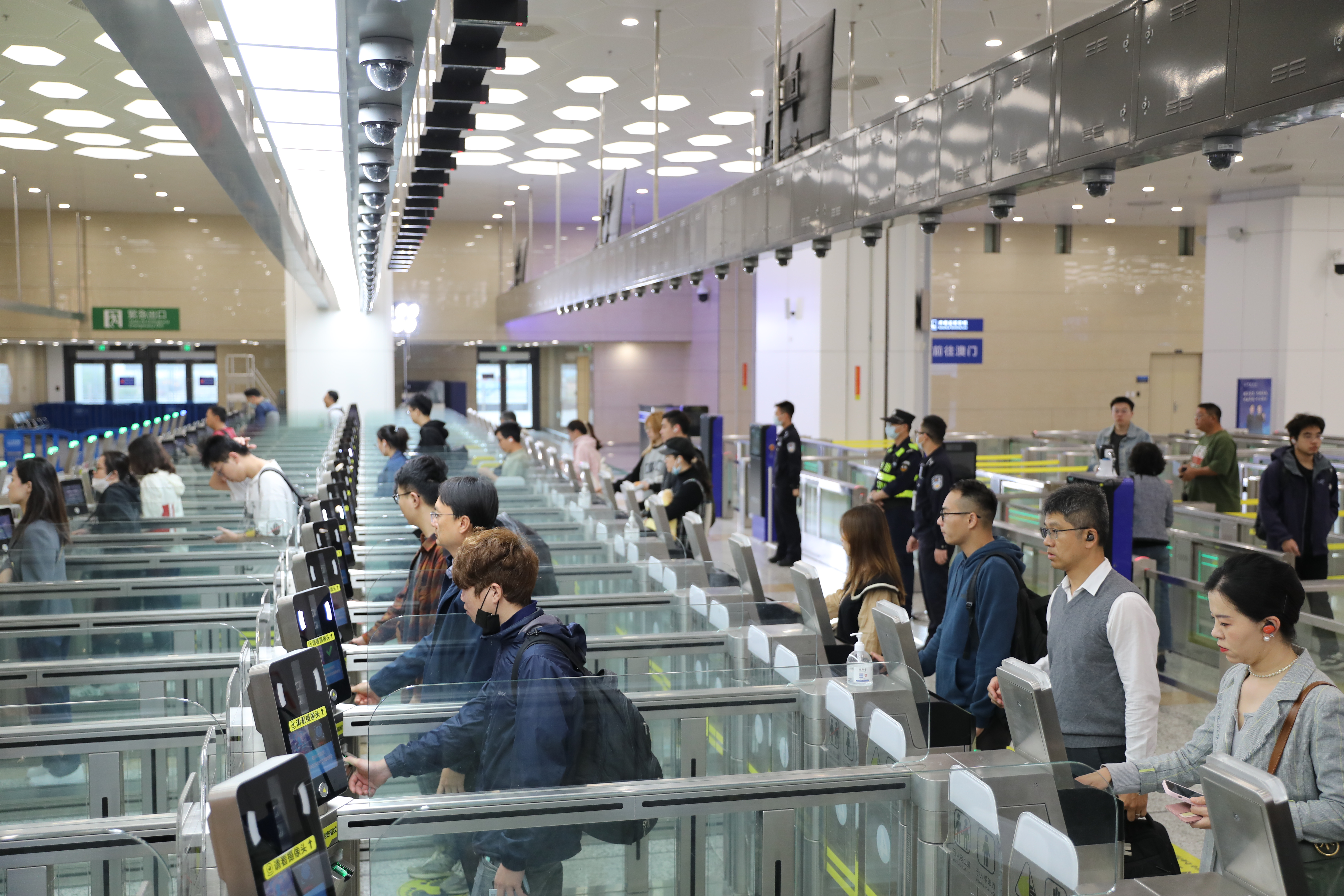
As the "one-hour living circle" in the Greater Bay Area (GBA) is becoming a reality, you can imagine that while you are savoring morning tea in Guangzhou, you will enjoy roast pigeon for lunch in Zhongshan, and visit the romantic Victoria Harbor at night. Tourists are planning a visit to the GBA on their travel bucket lists.

As the GBA strives to become a world-class Bay Area, strengthening the attractiveness of city clusters in cultural and tourism aspects to support high-quality development has become a heated topic for several National Committee of the Chinese People's Political Consultative Conference (CPPCC) members.
Mr. Ken Chu, a CPPCC member from Hong Kong, as well as Chairman and CEO of Mission Hills Group, has been caring about the development of the cultural and tourism industry in the GBA, in which he has deeply engaged. He mentioned the need for the city clusters in the GBA to be internationally attractive in terms of cultural tourism and to become a model of high-quality development as it promotes rapid development in the economic sector. He advocated for government guidance to upgrade smart cultural and tourism systems across GBA cities. He proposed the implementation of a unified service platform for resource sharing, facilitating navigation systems, tour guides, and ticket booking. His proposal aims to promote the digital transformation of tourism enterprises in the GBA.
Mr. Charles M. Choy, a CPPCC member from Macao and Joint Chairman of Macau Beer Company Ltd., joined a Macao delegation of CPPCC members to Guangdong for investigation. He noticed that Guangzhou, Foshan, and Zhaoqing all have their own beer brands. With his partners, he initiated and held a food and beer festival in Macao and Qingdao for two consecutive years. In his view, such events could be promoted in the GBA. "It is perfect timing as this year marks the 25th anniversary of Macao's return. I believe that toasting provides an opportunity for interaction among GBA residents, fostering regional tourism." This year, he submitted a proposal on "unifying the Entry-Exit Permit for mainland residents to Hong Kong and Macao, achieving one-permit for mainland residents to Hong Kong and Macao," as he believes that the reform of the travel permit will promote further integration and development in the GBA.
Ms. Chen Qianwen, a CPPCC member and Vice Chairperson of the Guangdong Committee of the China Association for Promoting Democracy, highlighted that Sha Tau Kok, as the only area between Shenzhen and Hong Kong, is connected by both land and sea, sharing one street and allowing the free cross-border flow of people and goods. She pointed out that Shenzhen and Hong Kong have unique advantages in terms of geography, system and management in jointly constructing the Sha Tau Kok Shenzhen-Hong Kong International Consumer Cooperation Zone while the National Development and Reform Commission is suggested to guide Hong Kong and Shenzhen in preparing a comprehensive plan for the Sha Tau Kok Shenzhen-Hong Kong International Consumption Cooperation Zone. This plan should specify details including the closed conditions, inspection and supervision, law enforcement cooperation, and legal application, promoting the cooperation zone to be a national strategy.
粤港澳三地政协委员热议粤港澳大湾区文旅产业高质量发展
朝饮广州早茶,午品中山烧鸽,夜赏浪漫维港,粤港澳大湾区“一小时生活圈”正在照进现实,不少游客也将“打卡”湾区列入自己的旅游清单。
在迈向世界顶级湾区的过程中,如何加强城市群在文旅方面的吸引力,助力粤港澳大湾区高质量发展,也成为多位全国政协委员关注的话题。
港区全国政协委员朱鼎健的另外一个身份,是观澜湖集团主席兼行政总裁,深耕文旅产业多年的他,一直关注粤港澳大湾区文旅产业的发展。朱鼎健谈到,在推动经济领域的高速发展之际,粤港澳大湾区城市群在文旅方面也要具有国际吸引力,成为高质量发展典范。他建议,该指导意见应针对大湾区城市的智慧文旅系统升级做出要求,“例如各地应尽量用统一的文旅服务平台,实现资源共享,提高导航导游、门票预订等出行的便利度,推进湾区旅游企业整体实现数字化转型”。
澳区全国政协委员、澳门啤酒有限公司联席董事长蔡明威曾跟随澳区全国政协委员考察团赴广东省考察。他留意到,广州、佛山、肇庆都有自己的啤酒品牌。蔡明威曾联合合作伙伴发起并连续两年举办“澳门青岛双城文化美食啤酒节”。在蔡明威看来,这类啤酒节活动可以在粤港澳大湾区推广开来:“尤其今年是澳门回归25周年。碰杯也是在交朋友,我觉得这是大湾区人很好的互动机会,可以促进大湾区旅游业的发展。”他今年提交了关于“统一内地居民往来港澳通行证件,实现‘内地居民一证通港澳’”的提案,相信通行证件的改革会对大湾区进一步融合发展起到积极作用。
全国政协委员、民进广东省委会副主委陈倩雯表示,沙头角是深港唯一水陆相连、一街共处、人货自由跨境流通的开放式区域。她指出,深港联手打造沙头角合作区在地缘、制度以及管理三方面具有独特优势,建议国家发展改革委指导香港和深圳编制沙头角深港国际消费合作区总体建设方案,明确合作区封闭条件、具体查验监管模式、执法协作、法律适用等,助力合作区尽早成为国家战略。
文|记者 谭铮 王莉
译|王枥焓
-
《你好,代表》第三集丨区燕明:服务社区 25 年,一边工作一边履职
2024-03-07 11:03:05 -
Explore enchanting sea of Chinese roses in Huadu
2024-03-06 12:32:48 -
Shenzhen Dapeng New District: a magnet for Gen Y witnessing over 200% surge in overseas tourists
2024-03-06 12:32:48 -
Eight trillion-yuan-level industrial clusters thrive in the Greater Bay Area
2024-03-05 23:33:09






